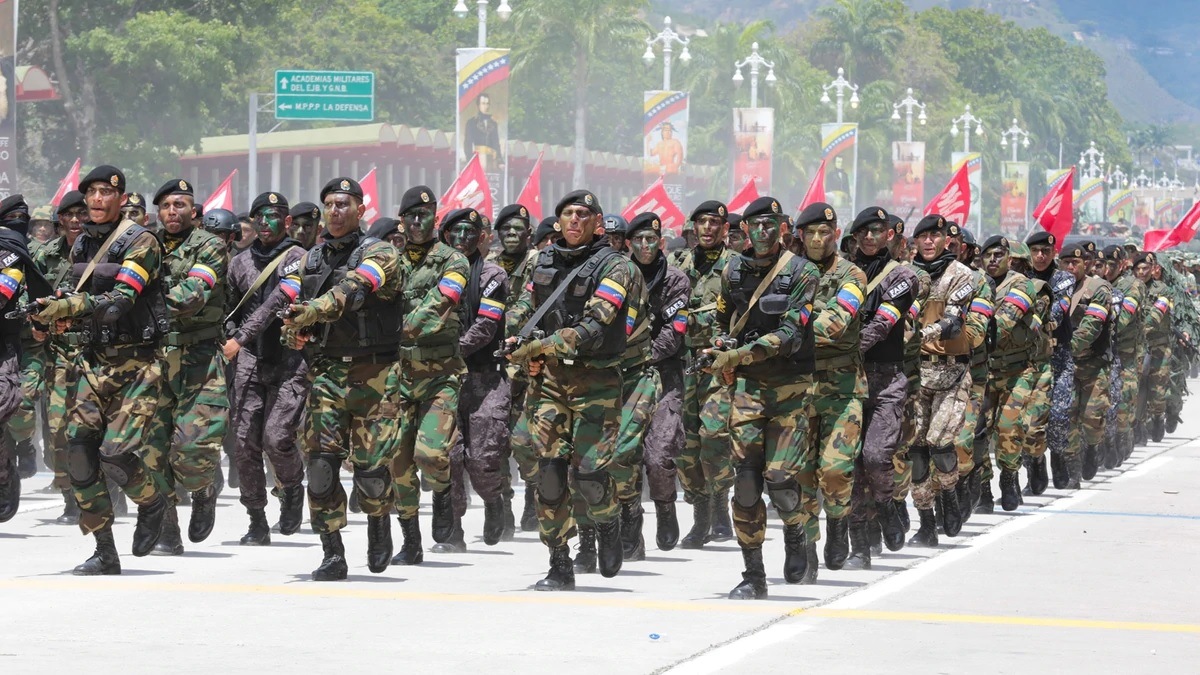RIO DE JANEIRO, BRAZIL – The country’s economic situation affects the Bolivarian National Armed Force’s whole structure. Although a small group may receive privileges, they are nothing more than that, only a reduced number for reason of position, rather than rank, have access to the advantages of their work or command position.

What was once a great draw to enter the armed forces has been lost in time and with the crisis, representing one of the main reasons for defecting. No matter how many raises there have been in recent years, brutal inflation eats it away, and soldiers are unable to cover the basic food basket with what they earn.
Looking at the wage scale of a Major General, we see that it reaches Bs177,774 (US$10, R$40), which leaves Bs145,000 (US$8) after deductions. When adding the amount deposited by the Savings Bank, they get a little over Bs154,000, plus bonuses. In the case of a Brigadier General, the salary is Bs161,000 (US$9), reduced to Bs135,000 by deductions.
A Colonel earns approximately Bs160,000 (US$9), plus a compensatory bonus of about Bs55,000 and Bs25,000 in food stamps. With the deductions, they get approximately Bs221,000.
In the case of a First Lieutenant, with eight years of seniority, his salary is Bs150,000 (US$8,5). A Staff Sergeant with a twelve-year service earns Bs120,000. A Sergeant earns a total of Bs110,000 (US$6.20).

The Social Prevention Institute of the Armed Forces (IPSFA) and military hospitals, particularly the “Dr. Carlos Arvelo” in Caracas, represented for the military the guarantee of social security and safe medical care.
Military hospitals throughout the country were known for their excellent care, medical equipment, and necessary services. That has substantially changed today. In the military hospital of San Cristóbal “Cap (Av) Guillermo Hernández Jacobsen” there are virtually no doctors anymore, even though it is of great significance due to the fact that it is located in the border zone and therefore needs to constantly attend to soldiers who are injured by confrontations and activities typical of the border area.
The Dr. Carlos Arvelo University Military Hospital in Caracas was of such importance that many military doctors from other countries would travel to train there and do postgraduate studies. Today it hardly provides any services to the Venezuelan military, stricken by severe shortcomings.
As for the IPSFA, today, it is not even remotely what it once was. Until a couple of years ago, the military and their families were covered for hospitalization, surgeries, maternity, medicines, and even for serious illnesses. For several years now, given the shortage of drugs, the network of pharmacies that supplied them has not been able to comply with conventions.
Although the armed forces are striving to meet the needs of the low-ranking troops, it is increasingly difficult to prevent them from leaving the institution, resulting in an alarming number of defections and leading Nicolás Maduro to order empty spaces to be filled with Bolivarian militia soldiers.

